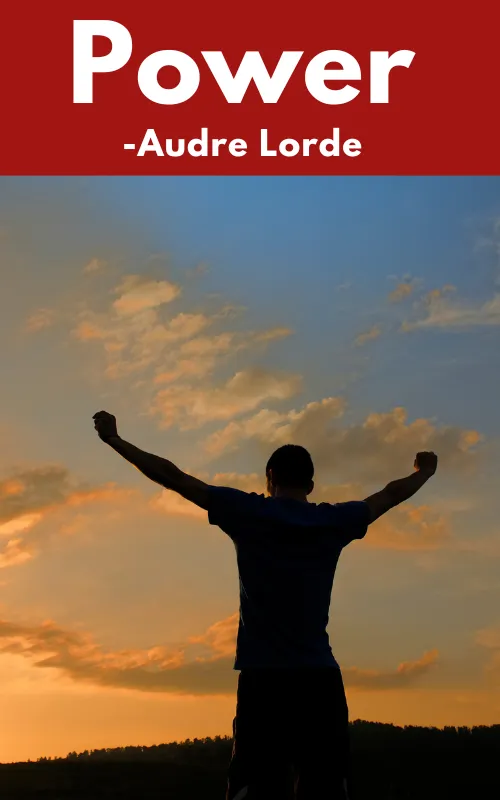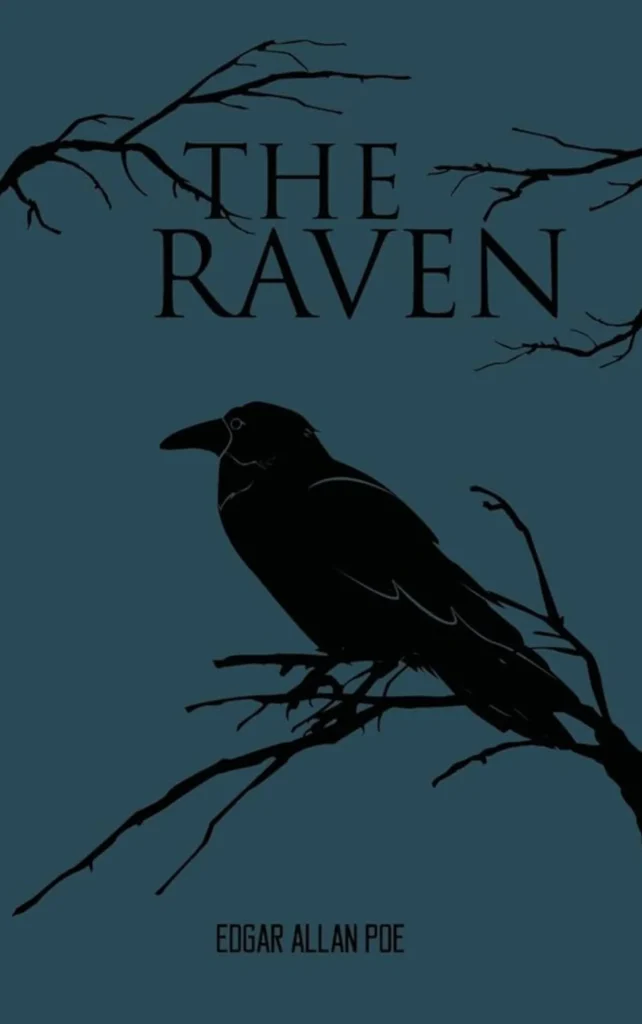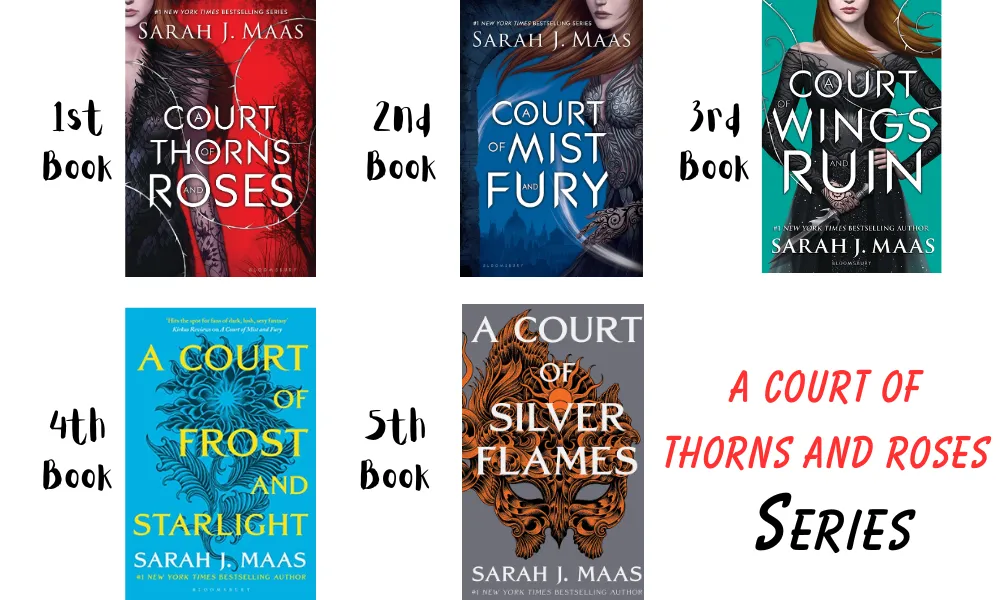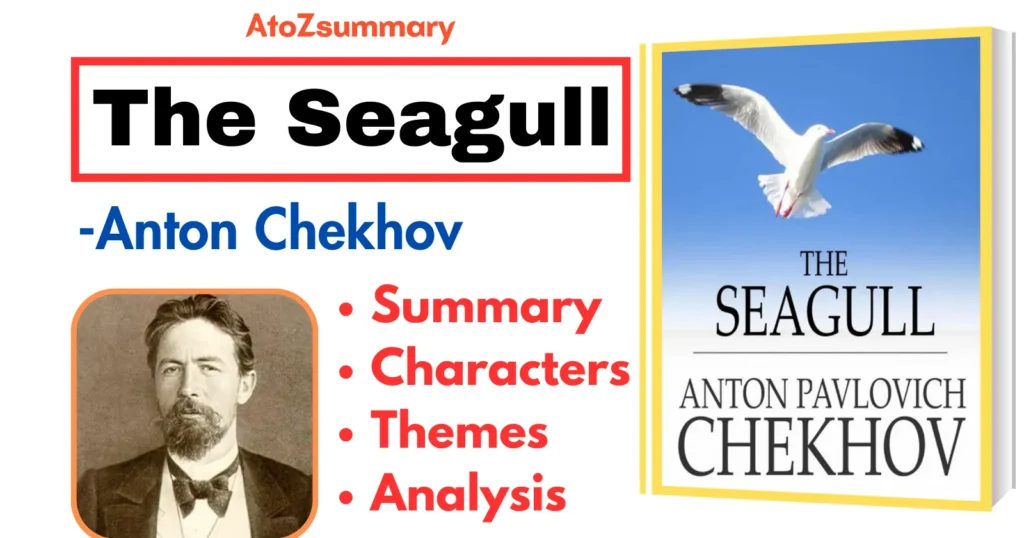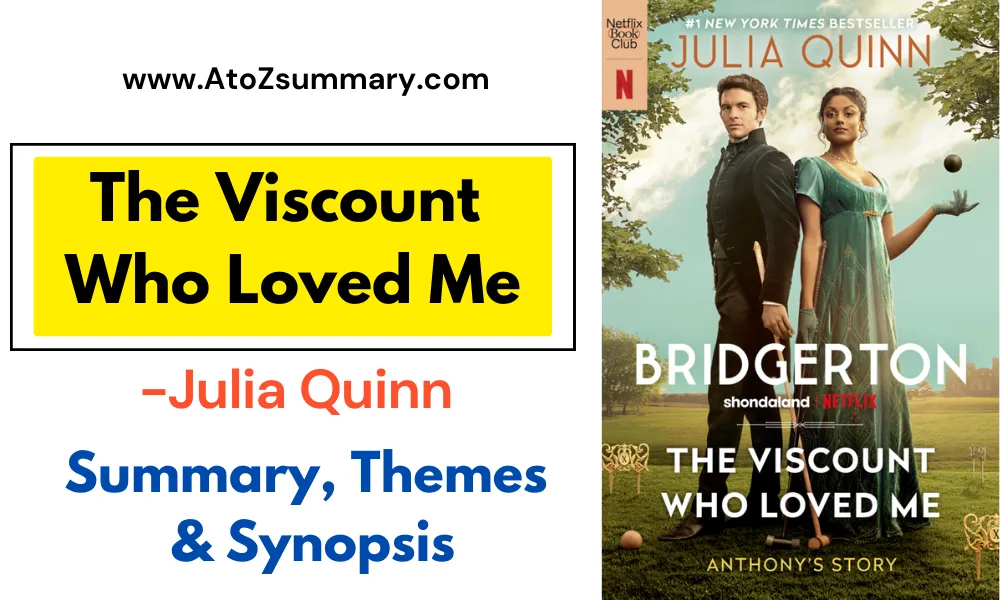About the Poem “Power”
| Poem Title | Power |
| Author | Audre Lorde |
| Genre | Poetry |
| Year of publication | 1978 |
| Form | Free verse |
| Style | Vivid imagery, metaphor, and emotive language |
| Speaker | The poet |
| Audience | The reader |
| Setting | Undisclosed |
| Tone | Defiant, assertive, and empowering |
| Themes | Power, identity, womanhood, and resistance |
| Major symbols | The sun, the moon, the stars, and the sea |
| Key concepts | Self-definition, self-love, and the power of women to create and transform |
Themes of Power
The themes of Audre Lorde’s poem “Power” are:
- Women’s power ➤ The poem celebrates the power of women, both individually and collectively.
- Power and Oppression ➤ The poem explores how people are affected by power dynamics and oppression, especially related to race and gender.
- Empowerment ➤ It emphasizes the importance of finding inner strength and standing up against oppressive systems.
- Resistance ➤ The poem encourages individuals to resist and challenge societal constraints and discrimination.
- Life and Death ➤ It discusses the serious consequences of not confronting oppression, suggesting that it can be a matter of life and death.
- Identity: The poem touches on issues of identity and the impact of power on one’s sense of self.
“Power” Poem by Audre Lorde
The difference between poetry and rhetoric
is being ready to kill
yourself
instead of your children.
I am trapped on a desert of raw gunshot wounds
and a dead child dragging his shattered black
face off the edge of my sleep
blood from his punctured cheeks and shoulders
is the only liquid for miles
and my stomach
churns at the imagined taste while
my mouth splits into dry lips
without loyalty or reason
thirsting for the wetness of his blood
as it sinks into the whiteness
of the desert where I am lost
without imagery or magic
trying to make power out of hatred and destruction
trying to heal my dying son with kisses
only the sun will bleach his bones quicker.
A policeman who shot down a ten year old in Queens
stood over the boy with his cop shoes in childish blood
and a voice said “Die you little motherfucker” and
there are tapes to prove it. At his trial
this policeman said in his own defense
“I didn’t notice the size nor nothing else
only the color”. And
there are tapes to prove that, too.
Today that 37 year old white man
with 13 years of police forcing
was set free
by eleven white men who said they were satisfied
justice had been done
and one Black Woman who said
“They convinced me” meaning
they had dragged her 4’10” black Woman’s frame
over the hot coals
of four centuries of white male approval
until she let go
the first real power she ever had
and lined her own womb with cement
to make a graveyard for our children.
I have not been able to touch the destruction
within me.
But unless I learn to use
the difference between poetry and rhetoric
my power too will run corrupt as poisonous mold
or lie limp and useless as an unconnected wire
and one day I will take my teenaged plug
and connect it to the nearest socket
raplng an 85 year old white woman
who is somebody’s mother
and as I beat her senseless and set a torch to her bed
a greek chorus will be singing in 3/4 time
“Poor thing. She never hurt a soul. What beasts they are.”
Power Summary & Analysis
Audre Lorde’s poem “Power” is a thought-provoking work that delves into the complexities of power and oppression, particularly in the context of race and gender. The poem consists of 5 stanzas, each contributing to the overall message.
Stanza 1
Lorde begins her poem by defining the difference between poetry and rhetoric. She says that poetry is about being willing to kill oneself instead of one’s children. This is a powerful and provocative statement, and it immediately sets the tone for the poem. Lorde is suggesting that true poetry is not about self-aggrandizement or empty words. It is about speaking truth to power, even when it is difficult or dangerous to do so.
Stanza 2
In the second stanza, Lorde describes the graphic and haunting images that plague her after a police officer kills a young black boy in Queens. She is trapped in a desert of violence and death, and the only liquid for miles is the blood of the dead child. Lorde’s language is visceral and raw, and it conveys the deep pain and anger that she feels.
Stanza 3
The third stanza provides more context for the poem. Lorde explains that the police officer who killed the boy was acquitted by a jury of eleven white men and one black woman. The black woman on the jury was the only one who voted to convict, and Lorde suggests that she was pressured to change her vote by the white men. Lorde is outraged by the injustice of the situation, and she feels that the black woman on the jury has betrayed her own people.
Stanza 4
In the fourth stanza, Lorde reflects on her own power and how she can use it to make a difference. She says that she must learn to use her power wisely, otherwise it will become corrupted like poisonous mold or lie limp and useless like an unconnected wire. Lorde knows that she has a responsibility to speak out against injustice and to fight for the rights of her people.
Stanza 5
In the final stanza, Lorde imagines a future in which she uses her power to challenge the status quo. She imagines herself raping an 85-year-old white woman and setting fire to her bed. This is a shocking and violent image, but Lorde is using it metaphorically. She does not support violence against women, but rather a radical social change. Lorde believes that the only way to achieve true justice is to overthrow the oppressive system that benefits white men at the expense of everyone else.
FAQs from Power
What is the poem power and conflict about?
The poem “Power” by Audre Lorde is about the oppression of black people by white people, and the importance of using poetry to fight for justice.
What does power by Audre Lorde symbolize?
Power by Audre Lorde symbolizes the potential of poetry to challenge injustice and fight for liberation.
What is the conclusion of poem power?
Conclusion of the poem Power by Audre Lorde: Poetry can be a powerful tool for challenging injustice and fighting for social change.

